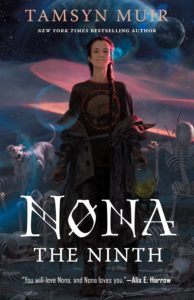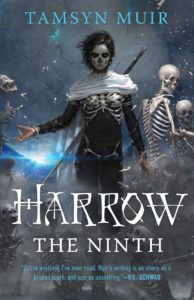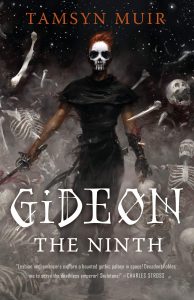 It is my understanding that Tamsyn Muir wanted to name this book Nona, rather than Nona the Ninth, but her editor and/or publisher told her she couldn’t if she expected people to find the book and continue reading the series. The compromise position they reached was Nona
It is my understanding that Tamsyn Muir wanted to name this book Nona, rather than Nona the Ninth, but her editor and/or publisher told her she couldn’t if she expected people to find the book and continue reading the series. The compromise position they reached was Nona the Ninth, and to my regret, this is not something I can reflect in the post name. So just be aware I would have if I could have.
Nona was much easier to read than Harrow, but I find that it is much harder to describe without spoilers. Part of that is because it is the third book in a nominally four book series, of course. Part of it is because Tamsyn Muir never met a plotline (or a character development) she couldn’t obfuscate inside out and backward[1].
So let’s see. If Gideon is a book written from the perspective of the Nine Houses, and Harrow is a book written from the perspective of The Emperor and his Divine Saints, then Nona is a book written from the perspective of the citizenry of the Empire that exist outside the Houses[2]. Nona and her friends (and the citizenry that surround them) live in a city on a planet under siege. Under siege by the [let’s say] terrorist organization Blood of Eden, under siege by the Empire, under siege by the glowing blue light in the sky. Within five days (as heavily implied by the early text of the book), everything is going to go straight to hell, and Nona (and her friends, let us not forget) must balance the razorwire to make it through those five days. Also, not for nothing, that’s when Nona’s birthday is!
Before I go, I will introduce you to Nona, by telling you that her primary concerns are her job at school, and her upcoming birthday, and dogs, and absolutely none of the dangers that surround her. (And her friends.)
[1] To be clear, this is a compliment. I think a grudging one, and that is probably what makes it not be clear, but a compliment nonetheless.
[2] Which is already sort of a spoiler for the series, because as far as I could tell reading Gideon, the Nine Houses were the entirety of the Empire; I had no idea a separate citizenry existed!

